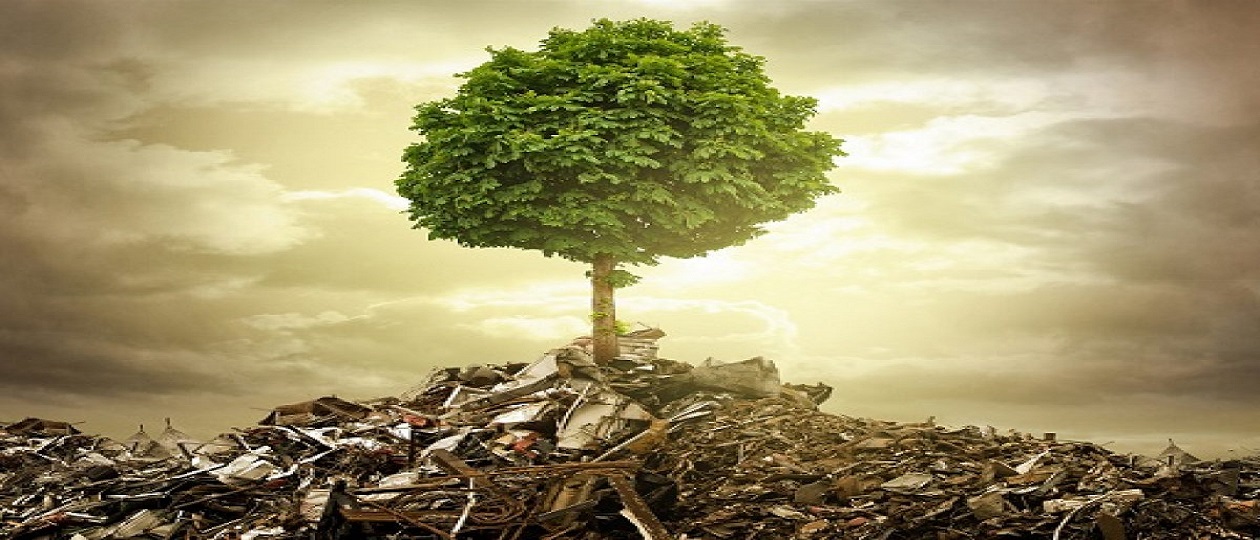
Chapter 1.
Today more significant changes take place in months or years-or even seconds, in the case of atomic explosions.
While the real extent and nature of the impact of ancient technology must not be underestimated, what impresses us almost as much is the failure of the ancients to pursue inventions, and the slow rate of technological change that resulted. Of all ancient peoples, the Romans possessed the most highly developed technology, and in this respect they are closest to us. Their machines for war, construction, and industry foreshadowed some that are still in use today. The fact that ancient peoples absorbed and survived successive changes in the technology of war and peace cannot be of much comfort to us today, because the rapidity, size, and power of such changes today are of an entirely different order from anything experienced in ancient times.
Another factor determining the way a human community will interact with the natural environment is the degree of organization and social control the community possesses. This is true because environmental ends desired for the good of the community may involve sacrifices on the part of its individual members, sacrifices which they would not make without some degree of social encouragement or coercion. The early civilizations of the river valleys, for example, had to be able to call for large expenditures of human energy on the construction of canals which seemed to benefit the entire society.
Ancient civilizations were able to exert a considerable degree of social control because the vast majority of ancient people regarded themselves primarily as parts of their societies, and only secondarily, if at all, as individuals. Each person had a place in the social hierarchy which was rigidly defined and rarely changed. This was true of the pharaonic autocracy of Egypt, perhaps the most marked example of social control in the ancient world. But Egypt suffered periodic breakdowns in social control, and no ancient civilization could have channeled the actions of its citizens with regard to the environment to the extent that is at least theoretically possible today.
All ancient societies depended to a large extent on slave labor, a fact which seems to indicate an extreme degree of social control, until it is remembered that the majority of slaves were owned by citizens, not by the state, and that citizens were to a surprising degree able to pursue their private goals, at least in Greece and Rome.
As indicated previously, Greek and Roman governments established policies in the fields of agriculture, forestry, mining, and commerce, but citizens were allowed a wide latitude of choice within certain guidelines. Greek citizens had carefully defined duties to the community, but the city-states are noted for the freedom they allowed.
The later Roman Empire tried to interfere in and control the lives of its citizens to an unusual extent; the edicts of Diocletian attempted to stabilize occupations, regulate prices, and control religion, while his secret police kept him informed of activities dangerous to the state. But no ancient autocracy remotely approached the ability of a modern industrial state to keep informed about its citizens and see that they perform their social duties.
Greece operated without imprisonment as a punishment, and the Roman Empire supported itself financially without an income tax. The degree of control that can be exercised in the modern world by governments with electronic surveillance, computers, chemical and psychological methods, bureaucracies, police, deportations, and prisons is unmatched by anything seen before in world history.
In democracies, environmental policies can be established only when widespread public support for them exists. Over the last few decades, such policies have in part been established even over the opposition of powerful pressure groups. Some needed measures have been blocked by the same groups or by the tendency of the public to prefer short-term personal gains to long-term benefit for society.
Totalitarian states such as the former Soviet Union have also taken some steps to preserve the environment, but we have not yet seen a major government take all of the steps which seem called for in the present ecological dilemma.
Neither in ancient times nor in modern times have human communities become fully aware of the role which their relationship to the natural environment plays in their long-term welfare and even survival.
One conclusion which seems clear to this author is that the modern ecological crisis grew out of roots which lie deep in the ancient world, particularly in Greece and Rome. The problems of human communities with the natural environment did not begin suddenly with the ecological awakening of the 1960s, nor indeed with the onset of the Industrial Revolution or the Christian Middle Ages.
Mankind has been challenged to find a way of living with nature from the earliest times, and many of our habitual answers to that challenge received their first conscious formulation within ancient societies, especially the classical civilizations.
At this point, one might well ask whether this study of ancient civilizations has produced any insights which might be of use in meeting the present crisis. If our ecological crisis has ancient roots, it might also be possible to learn from some of the successes and failures of ancient civilizations as we look to the future.
First of all, it might be possible for people today to recover something like the attitude of respect for the earth and nature that was felt by many in ancient societies. This could come not as a renaissance of animism, or a revival of ancient religions which have lost their ability to infuse human minds, but as a new insight compatible with many religions and philosophies. Judaism and Christianity could expand their concepts of human stewardship to recapture the biblical inclusion of the whole created natural world within the responsibility of people to God.
Islam has its own unique insights along similar lines. Others will be impressed by Albert Schweitzer’s demonstration that the concept of reverence for life serves as a basis for philosophical ethics. Eastern philosophies, which have long contained attitudes toward nature which emphasize harmony, respect, and refusal to exploit, might find ways to realize their insights. Recent interest in the American Indian feeling for the land and its creatures reveals that the native Americans had ecological wisdom which can be studied and emulated. Better attitudes toward the natural environment will have to develop in a pluralistic human community, as people of varying traditions and points of view come to see the necessity of caring for the earth in order to preserve life itself and improve the quality of life.
Second, a concentrated effort to study the natural environment in all of its facets and interrelationships is needed. This is particularly crucial at the present moment, before much of the evidence about nature is altered, marred, or erased by human activities. These activities themselves and their effects upon the natural environment must also be investigated thoroughly. No wise environmental policy can be based on ignorance of the workings of nature. So that we may learn from what mankind has experienced through millennia of interaction with nature, more research is needed into the ecological relationships of past human societies, to correct and fill out the broad outline which is presented here.
Third, each human community must seek a viable relationship with the natural environment at the level made possible by the technology available to it. A study of ancient civilizations should demonstrate that a rejection of modern technology or an attempt to turn back the clock would not in itself assure a proper balance with nature or prevent environmental degradation.
Rather, we should find ways to use our technological abilities in order to minimize the destructive impact of our civilization upon the natural evironment and to enhance our relationship with nature in ways which are beneficial both to people and to the environment. This would no doubt mean that some possible avenues of technological development ought to be abandoned, and that human population ought to be stabilized at some optimum size. No level of technology could support an unlimited increase of human numbers without catastrophic damage to the natural world and resultant crisis for mankind.
Finally, as human beings, we must be willing to accept freely certain limitations on our actions which affect the earth. In democracies, these limitations can be based on public awareness of the magnitude of environmental problems and of the options which exist to meet them. The alternatives to freely chosen environmental policies, consistently administered, are probably few. History does not provide us with an example of an ecologically aware dictatorship, willing to coerce its people to take the courses of action which it deems necessary for survival in balance with nature, but such a government is certainly a future possibility somewhere in the world, unpleasant as it may be to contemplate.
History does, however, provide us with many examples of ancient peoples who failed to adapt themselves to live in harmony with the ecosystems within which they found themselves, who depleted their environment, exhausted their resources, and exist today only as ruins within eroded and desiccated landscapes. That fate might also await our own civilization, but this time on a global scale.
Ancient history is a warning and a challenge to our attitudes, our ability to understand, our technological competence, and our willingness to make far-reaching decisions. The challenge will not go away, and the response we will make is not yet clear.





